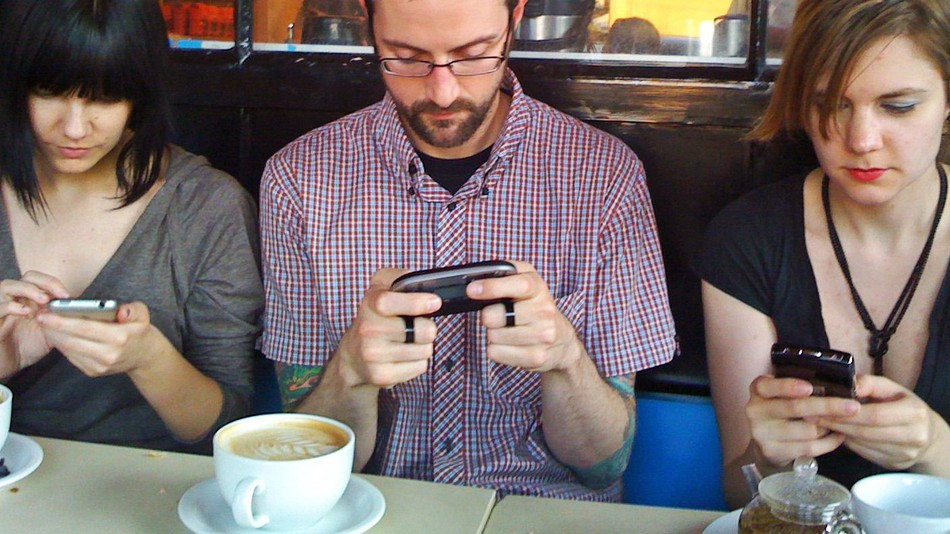You know you have a problem when….
- You end up spending longer than you intended being online and / or getting distracted from what you originally planned.
- You are gradually spending more and more time online / texting etc.
- It is interfering with aspects of your life: study/work/ family/ friends /health/sleep.
Why is it so difficult to resist?
- Behavioural addiction hooks into the dopaminergic pathway. This is the same pathway which is activated by drug addictions. Behavioural addictions include compulsive eating, gambling, pornography viewing, computer gaming and internet addiction. Over time there is a natural desensitisation to the same stimulus, so we need more exposure to get the same amount of dopamine release.
- Electronic media are constantly accessible and there is an infinite supply of content.
- Computer games are specifically designed by behavioural psychologists to be difficult to stop playing as there is always another level to reach.
- Re social media, e.g facebook, if you start with the premise that there’s no such thing as time wasting i.e we do everything for a reason, then what’s the gain from social media? For me it’s about connection. If I don’t manage to connect with myself or those around me much, then I pacify that need with some virtual connection. Often I see that I’m looking for something, but not really getting what I’m looking for, which is real connection to myself or another human being. Meanwhile I get hooked into trying to get more likes/friends/comments…..
What are the effects of over-exposure to electronic media?
- The frontal lobe of the brain becomes underactive. The frontal lobe is responsible for impulse control, decision making, empathy, planning, self-regulation.
- Cognitive control is reduced: ability to concentrate, filter out distractions and follow instructions. Therefore studies will be affected.
- Working memory becomes overloaded, particularly when we are multi-tasking i.e with more than one screen/application. This leads to increased distractability and affects transfer to long-term memory.
- Sensory stimulation leads to disturbed sleep, especially in the hour before bed as this interferes with melatonin production.
- We become habituated to the rewards (stimulation) provided by electronic media and other (healthier) activities become less appealing.
- Excessive TV viewing is linked to attention problems in children and to depression, anxiety and obesity.
Why is this of particular concern in relation to children?
- Children’s brains are developing by laying down neural pathways, so if they are continually activating the same areas of the brain and other areas are under-stimulated this will influence the areas of the brain which develop and the way their brains work as adults.
- Children learn by observation. This means both that they copy what they see on screen (hence the concern about violent computer games), and that they copy the adults around them, so if we are hooked ourselves and e.g constantly checking our phones/emails then this is what we are modelling and this is what they will pick up.
www.theguardian.com/education/2016/dec/25/screen-based-lifestyle-harms-health-of-children
Tips for parents on how to detach your children from their devices / screens
- Sit with your child for 30 seconds, or longer, and simply watch whatever she is watching/doing.
- Ask an innocent question about what’s happening on screen. Most children love their parent’s attention, and will provide answers.
- Once you’ve created a dialogue, you’ve created a bridge that will allow your child to detach from the screen back into the real world, without a rapid drop in dopamine (which is what can give rise to protests and tantrums).
How can we control our use?
- Digital detoxing is helpful at all scales; from 20 minute breaks while working, leaving your desk at lunch and getting out into fresh air, to email-free days and holidays where you switch off completely and unwind.
- Create some healthy rules at home, such as no computers or phones in bedrooms, no TV /phones during mealtimes and switching off the WiFi at least an hour before bedtime.
- Checking phones and email can be done at sensible intervals rather than incessantly; thus leaving you free to focus properly on what you are actually doing.
What is the good news and how can we counteract the influence of electronic media?
The good news is that our brains are plastic, which means that at any age we can begin to lay down healthier neural pathways by choosing constructive activities & focussing on one thing at a time:
- Being in nature
- Physical exercise
- Daydreaming: unstructured activity is necessary for creativity
- Meditation
- Creative hobbies
- Social games and activities
- Community activities: get involved!
Parting thought
When we seek to distract ourselves with electronic media, we also avoid touching something deeper within ourselves. Maybe there’s a missed opportunity in here: What would happen if we stayed with the boredom?
We can learn a lot by observing ourselves: What are we using distraction for? What are we running away from that is so terrible, that we find it difficult to stay with?
Perhaps our hope is that if we keep all this distractedness going, we will not have to feel what we feel, we will not have to see what we see.
For more suggestions and support try Being with
Links
For more information: www.zonein.ca/videos-info.html
A free piece of software which can change the blue light from your screen to a warm tone after sunset to reduce disturbance to melatonin production (which causes difficulty sleeping) : www.justgetflux.com/
Acknowedgment
with thanks to Paula Healy, (MSc Neuroscience) whose talk inspired this post.
If you want to find out how Ayurvedic lifestyle changes, treatments and herbs can transform your life, you can email me julie@simpleayurveda.co.uk. I would love to connect with you.
Julie Ulbricht is an Ayurvedic Practitioner and Family Constellations facilitator, working in London & Sussex
